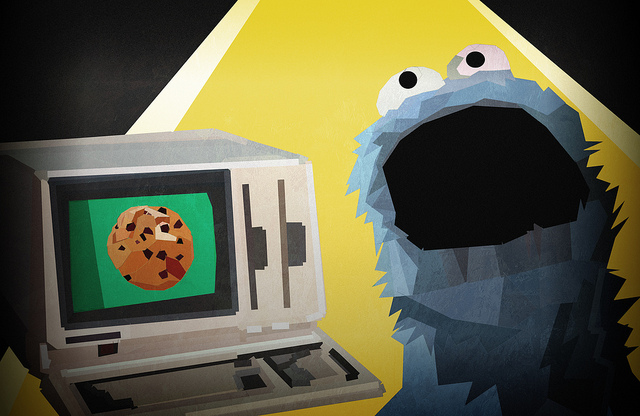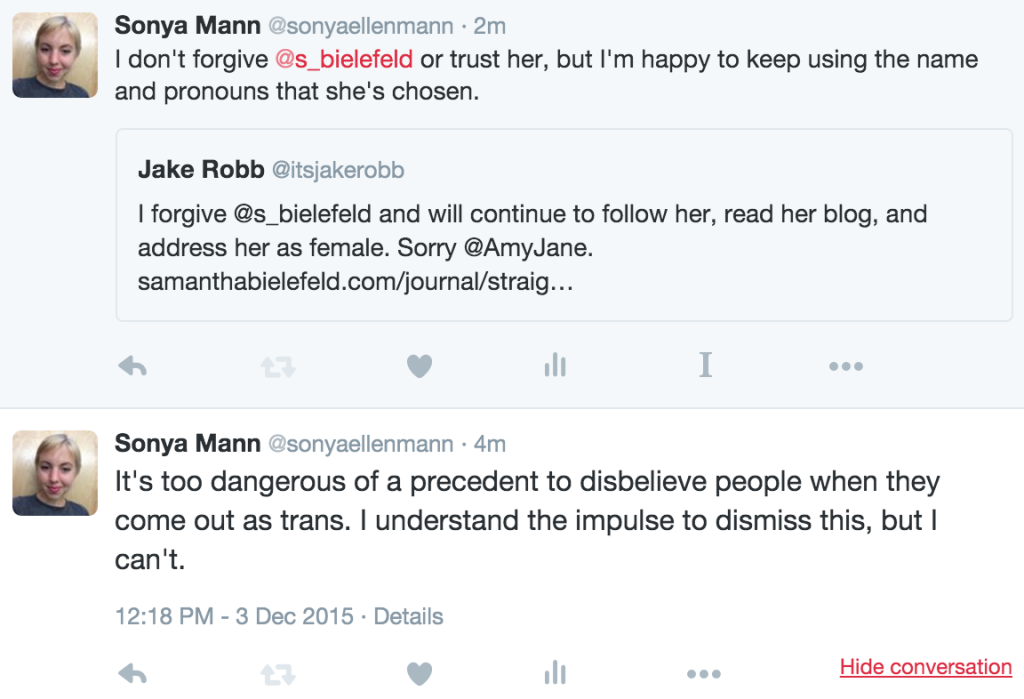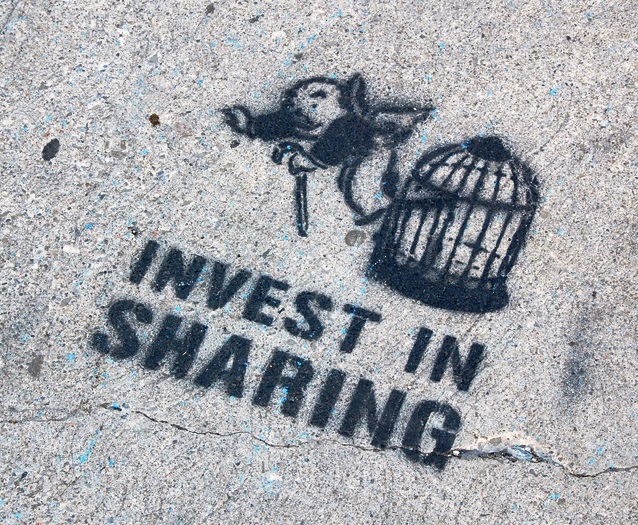In the wake of the Samantha Bielefeld debacle — which, to summarize various Twitter threads, involved a man posing as female tech blogger in order to stir up drama and possibly make money — I’m reflecting on anonymity online. (It’s not important that you be familiar with the whole SB thing in order to read this post, but if you’re interested you can learn more here, here, here, and here, in addition to the link in the first sentence.)
It benefits me tremendously that I’m able to reference my personal Facebook account on this website, that I’m able to post selfies and meet people in person. If I were in the situation that Samantha claimed to be, and I needed to conceal my identity so my bosses wouldn’t object to my internet life, it would be harder to be trusted. Maybe when I chose to criticize popular men, people would wonder, “Is this another scam artist? What’s her ulterior motive?” (Although I suppose this problem doesn’t afflict Taylor Swift’s infosec account.) Being able to reveal my face makes it easier for me to be taken at face value.

I feel weird about this. I’m not a huge privacy advocate — we don’t have any inherent right to conceal information about ourselves and insignificance is the best protection — but I’m also not a moron, and I recognize that society’s preexisting power systems determine who gets to conceal themselves and who must be open in order to be believed. The main reason I don’t have to worry about demonstrating my genuine legal identity is that I’m not discussing anything controversial, and I’m a middle-class white girl. (Imagine if I wrote about feminism, or video games!) There are risks, but minimal enough that I don’t worry about it.
I’m guess all I’m saying is that structural inequalities are a bummer, and the dynamics of anonymity reveal that. What an exciting and tötally nëw revelation!
There’s more! An update from Samantha herself and my position on it:


